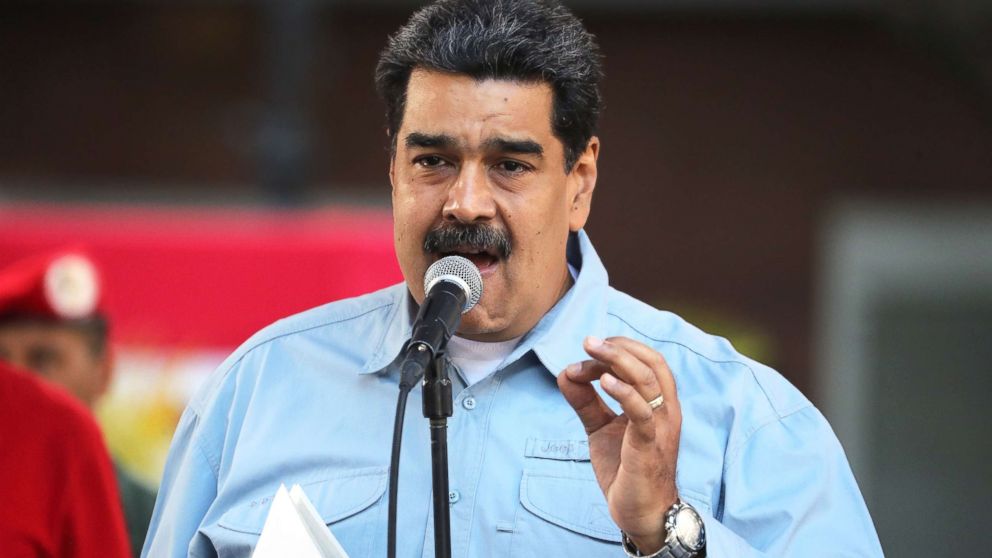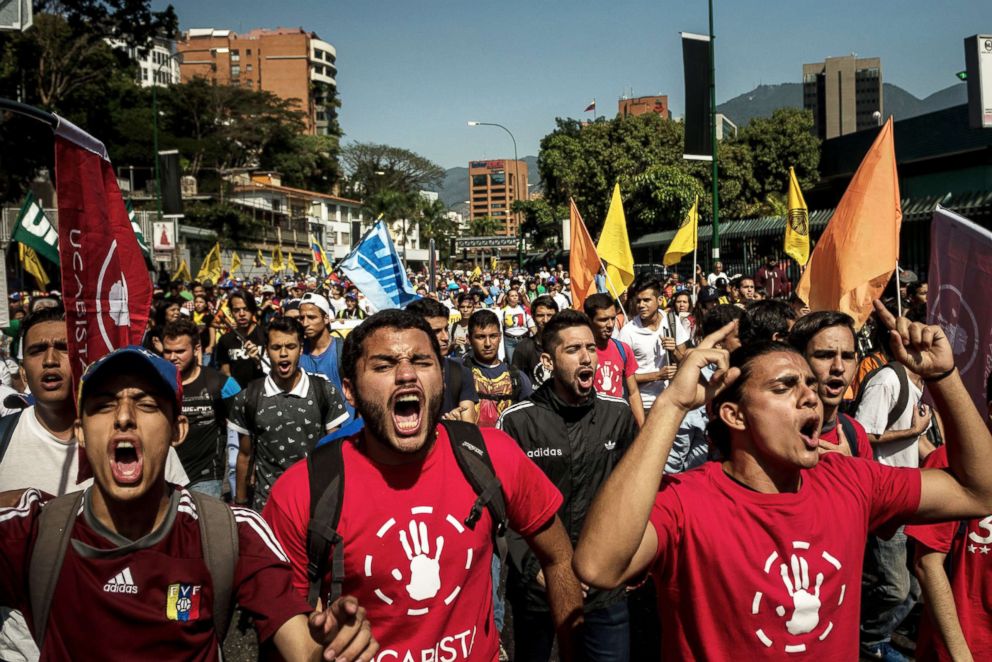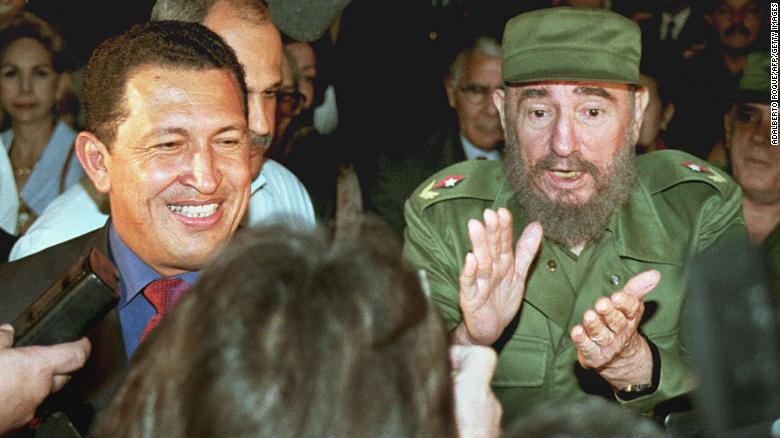Ideological Reciprocals
"[The Cubans] are key consultants and advisers, but I don't think they're calling the shots."
"Cubans often complain that Maduro doesn't listen to them."
David Smilde, Venezuela expert, Tulane University, New Orleans
"They are certainly ideological brothers-in-arms. But it doesn't have the same friendliness as it used to. And the Cubans aren't getting as much out of it [the friendship] as they used to."
"[Should Mr. Guaido and the opposition gain control in Caracas] that would, of course, be very bad news for Havana."
"That will very quickly change the relationship with Cuba."
Ted Piccone, senior fellow, Brookings Institution
"This agency [Venezuelan intelligence agents, detaining Juan Guaido briefly] is controlled & directed by experienced oppressors sent by #Cuba & these kinds of tactics are textbook methods used by the Cuban regime."
U.S. Senator Marco Rubio, Twitter
 |
| (MiguelL Gutierrez/EPA via Shutterstock) Venezuelan President Nicolas Maduro speaks during an event at Bolivar Square, in Caracas, Venezuela, Feb. 07, 2019. |
A longtime ally of Venezuela, Cuba has been Venezuela's most enthusiastic and robust supporter in the geographic region they occupy, where President Miguel Diaz-Canel has offered President Maduro his government's "unwavering solidarity", naming Venezuela's political turmoil "the attempt to impose a coup d'etat, a puppet government at the service of the United States."
Cuba is to blame in large part for Maduro's endurance in office, in the view of many opponents of the Maduro regime, pointing to the presence of Cuban operatives throughout the country; spies, intelligence and political advisers, counterintelligence agents, military trainers. Supporters of Juan Guaido, who has declared himself the legitimate interim leader of Venezuela, insist that Cuba has propped up Maduro through aiding him in suppressing popular dissent.
The presence of Cubans in the Venezuelan armed forces was "unacceptable", points out a Venezuelan opposition leader, Maria Corina Machado. The Cuban government "must understand that they have to let go of Venezuela". When Hugo Chavez came to power in 1998 a deep friendship between himself and Fidel Castro existed, and they drew even closer with the Venezuelan election making Chavez president.
 |
| (Meridith Kohut/The New York Times via Redux) Venezuelan opposition supporters march in a demonstration protesting the authoritarian rule of President Nicolas Maduro of Venezuela in Caracas, Feb. 2, 2019. |
"They were very close, like a father-and-son relationship", specialist on the Cuban economy Richard Feinberg, at the University of California, commented. When Hugo Chavez was diagnosed with cancer, it was to Cuba for expert medical attention that he turned. Cuba had benefited hugely from the generosity of President Chavez's oil gifts to the country. Cuba reciprocated by sending security and military specialists along with doctors, nurses, teachers and athletic coaches in support of Venezuela's professionals.
Venezuela's subsidized crude oil shipments to Cuba -- an estimated 100,000 barrels daily, was of inestimable help to the Cuban economy, especially since the dissolution of the USSR and Cuba's loss of revenues from that quarter, leaving it to deal with harsh U.S. sanctions minus Russian financial support. Cuba was able to sell surplus oil from Venezuela it had refined, to the international market to aid its economy.
The Brookings Institution estimated that the trade in goods and services amounted to 2.8 percent of Cuba's gross domestic product. Since the economic crisis that Venezuela has wobbled under in the past few years, crude exports to Cuba have dropped in lock step with Venezuelan oil production collapse. Now, say experts, the ranks of Cuban professionals at work in Venezuela have been depleted, the Maduro regime's relations with the new Cuban leadership waning.
Which doesn't mean that Cuba will no longer remain intensely obligated to support the Maduro regime, since Havana faces the risk of losing a vital economic benefactor and at the same time a crucial leftist ally in a geographic region that has been shifting rightward of late.
 |
| Venezuela's then-president-elect Hugo Chavez, flanked by then-Cuban leader Fidel Castro at the Jose Marti airport in Havana in 1999. |

<< Home